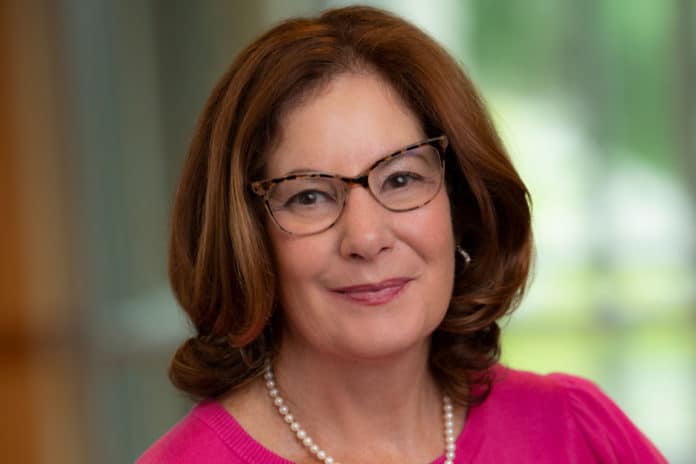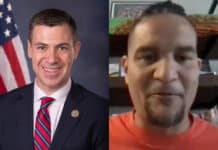Two summers after the summer of George Floyd, a friend made a confession over cocktails and dinner. I’ve never thought of myself as a racist, he said. But I’m starting to feel like one.
I understood. I’ve had similar thoughts. We’ve had a steady drumbeat of messaging ever since one man’s death changed life as we knew it, here in Minnesota and far beyond. It’s not that our hearts have hardened against black people. It’s more that the incessant messaging causes one to wonder whether something you know to be false could be true.
I grew up in an era in which Dr. Martin Luther King’s words shaped the thinking and behavior of myself and most people I know.
It’s a familiar directive: judge others not by the color of their skin, but by the content of their character.
But a new generation of civil rights leaders have their hands on the wheel. And they’ve got quite a different message.
It’s like a song you’ve heard too many times on the radio. White people are oppressors. Black people are oppressed. Skin color matters more every day.
Racism has infiltrated not only our hearts, but also every institution which forms the bedrock of our society, they say.
Law enforcement is racist. Health care is racist. Schools are racist. The military is racist. Politics are racist.
And yet … not everyone thinks this way. More importantly, many thoughtful and successful black people don’t think this way.
I’ve watched excellent films — “What Killed Michael Brown?” and “Uncle Tom.” I’m looking forward to seeing “Uncle Tom II.”
I’ve listened to interviews with Bob Woodson, Larry Elder, Carol Swain, Candace Owens, and Brandon Tatum, and read thoughtful writings by Thomas Sowell and Jason Riley.
Most recently, I watched “I Am A Victor,” a documentary produced by Take Charge Minnesota. With Kendall Qualls as the president and Sheila Qualls as the executive director, Take Charge Minnesota is challenging the narrative about the problems plaguing the black community.
I interviewed Kendall when he was seeking the Republican nomination for Minnesota governor. I’ve since met Sheila, also a contributor for Alpha News.
Like Kendall, I came from a broken home in a broken city. My mother often reminded us that life isn’t fair, and no one likes a victim.
Perhaps that’s why I was so intrigued when I heard the title to the film. I Am A Victor includes interviews with men and women of various ages who grew up in different places. Interviewees describe lives filled with gangs and violence, drinking and drug use, divorce, abuse, and poverty. Each story demonstrates how life takes us to a fork in the road, where we could succumb to circumstances or push back and push through.
Perhaps selfishly, the film offers reassurance to me, my friend, and many others, that what we believed to be true is in fact true. We’re not racist.
Unnamed cast members acknowledge some people are racist but reject the assertion that America is systemically racist. They don’t want to be viewed as inferior to whites or other races. They’re not looking for handouts or to have standards lowered for them or their children.
I Am A Victor illustrates that black people, like people of every race, can overcome all sorts of obstacles, particularly if they get an education.
It’s impossible to recount all the stories or takeaways, though I was particularly taken with the mother who calls out her local school board for suggesting schools eliminate testing so black children can pass. It’s infuriating and insulting, she says. I agree.
The film is filled with other thought-provoking statements like:
“Disparities are caused by our choices.”
“There are a lot of well-intentioned or well-meaning white people who keep perpetuating this message that we are victims. And it’s just doing a disservice to everyone around the world.”
“If you turn on the TV the only thing you see about black people is sex, drugs, music, or sports. Why are we not propping up black scientists or [Virginia Lt. Gov.] Winsome Sears?”
And this:
“There’s a division (within the black community). There are people like me who know what the problem is. It’s our culture. We need to get it fixed. But then you’ve got this other group who appear to be buying into this notion that we are in this horrible oppressive place and we’re victims and I don’t know what they think the answer is.”
Every nonprofit, corporation, governing board, church, school, and government entity appears to have an answer — their diversity, equity, and inclusion initiatives. Are they watching films like I Am A Victor? Or are they only listening to those who insist black people are victims and cannot be successful unless we lower standards and expectations? Though it may be popular in some quarters, it’s an inherently insulting and demeaning approach that will ultimately fall prey to a host of other problems.


















